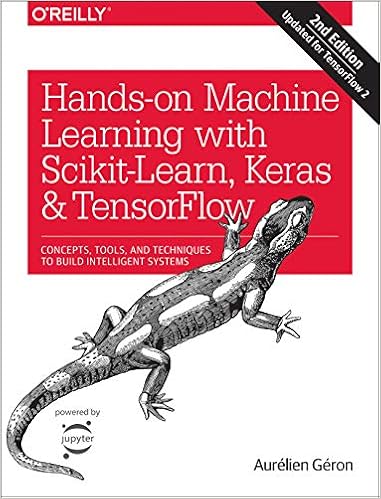Machine Learning Notebooks
This project aims at teaching you the fundamentals of Machine Learning in python. It contains the example code and solutions to the exercises in the second edition of my O'Reilly book Hands-on Machine Learning with Scikit-Learn, Keras and TensorFlow:

Note: If you are looking for the first edition notebooks, check out ageron/handson-ml.
Quick Start
Want to play with these notebooks online without having to install anything?
Use any of the following services.
WARNING: Please be aware that these services provide temporary environments: anything you do will be deleted after a while, so make sure you download any data you care about.
-
Recommended: open this repository in Colaboratory:
-
Or open it in Binder:

- Note: Most of the time, Binder starts up quickly and works great, but when handson-ml2 is updated, Binder creates a new environment from scratch, and this can take quite some time.
-
Or open it in Deepnote:

Just want to quickly look at some notebooks, without executing any code?
Browse this repository using jupyter.org's notebook viewer:
Note: github.com's notebook viewer also works but it is slower and the math equations are not always displayed correctly.
Want to run this project using a Docker image?
Read the Docker instructions.
Want to install this project on your own machine?
If you have Anaconda (or Miniconda) and git installed, then this project and its dependencies can be installed quite simply. Open a terminal and run the following commands (do not type the first $ signs on each line, they just indicate that these are terminal commands):
$ git clone https://github.com/ageron/handson-ml2.git
$ cd handson-ml2
$ # Read `environment.yml` if you want to use a GPU.
$ conda env create -f environment.yml
$ conda activate tf2
$ python3 -m ipykernel install --user --name=python3
$ jupyter notebook
If you prefer to install Python and the required libraries manually, or if you need further instructions, read the detailed installation instructions.
Contributors
I would like to thank everyone who contributed to this project, either by providing useful feedback, filing issues or submitting Pull Requests. Special thanks go to Haesun Park who helped on some of the exercise solutions, and to Steven Bunkley and Ziembla who created the docker directory.